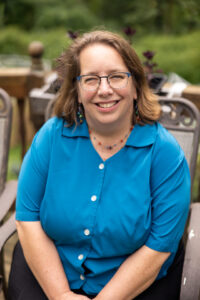By Marianne Delorey, Ph.D.

“I think a hero is any person really intent on making this a better place for all people.” — Maya Angelou
On a clear sunny day in the fall of 2014, my aunts, my mother, brother and I sat in the thin Colorado air to honor my dad, who was being inducted into the International Fallen Fire Fighter Memorial for those lost in the line of duty. He had died of cancer 15 years earlier, but his cancer was finally being recognized as a job-related death. And so we went to see his name written on a slab of black slate along with so many other names, hear his name called, and receive the recognition and honors we never earned on his behalf.
After a beautiful and moving ceremony, we had a chance to walk around the site. There were names from every state and over so many years that they all blurred together. I turned a corner and stopped short when I saw the slates holding the names of the firefighters from NYC who all died on 9/11. I was overwhelmed by the sheer number of names. A lump formed in my throat as I realized that each of those names represented a family, who was, like me, missing their own personal hero. Each name became a dad with silly jokes, a buddy at card night, a confidante.
I think I actually stopped breathing for a bit. Out of nowhere, a stranger, a slight, older woman with thin brown hair, approached me, and soundlessly opened her arms and held me tight. Neither of us spoke. She smiled and walked away. It was likely the kindest gesture by a stranger I will ever experience.
I think a lot about what it means to be a hero. And I think about the heroic acts of eldercare and healthcare workers during the pandemic. Maybe we cannot all put our lives on the line for someone else. Maybe that is okay. Maybe we can all do small, heroic acts like we all, as eldercare workers, do every day.
Psychologist Steve Taylor talks about heroes as “extreme altruists” who take action when there is a crisis. Many of these people do not see what they did as heroic. These people are often transformed by traumatic events and develop a deeper sense of purpose in life. However, he also described serial altruists:
“Those who engage in serial acts of altruism and kindness are often driven by an overarching goal that provides a sense of motivation, direction, and meaning. We also become more resilient and able to overcome obstacles that would normally defeat us.”
Perhaps this is a better way to define eldercare workers. Maybe (except during pandemics) we are not heroes, but serial altruists. Certainly, just like that woman in Colorado, we are all making the world a better place, one small act at a time. If we cannot save another with our lives, perhaps we can save another with our hearts. It is truly the best way we can honor the heroes among us.
RELATED CONTENT:
Everyday Heroes (fiftyplusadvocate.com)
Failing forward (fiftyplusadvocate.com)
Shining the light on caretakers Shining the light on caretakers (fiftyplusadvocate.com)









